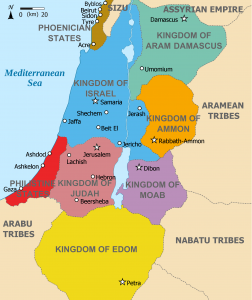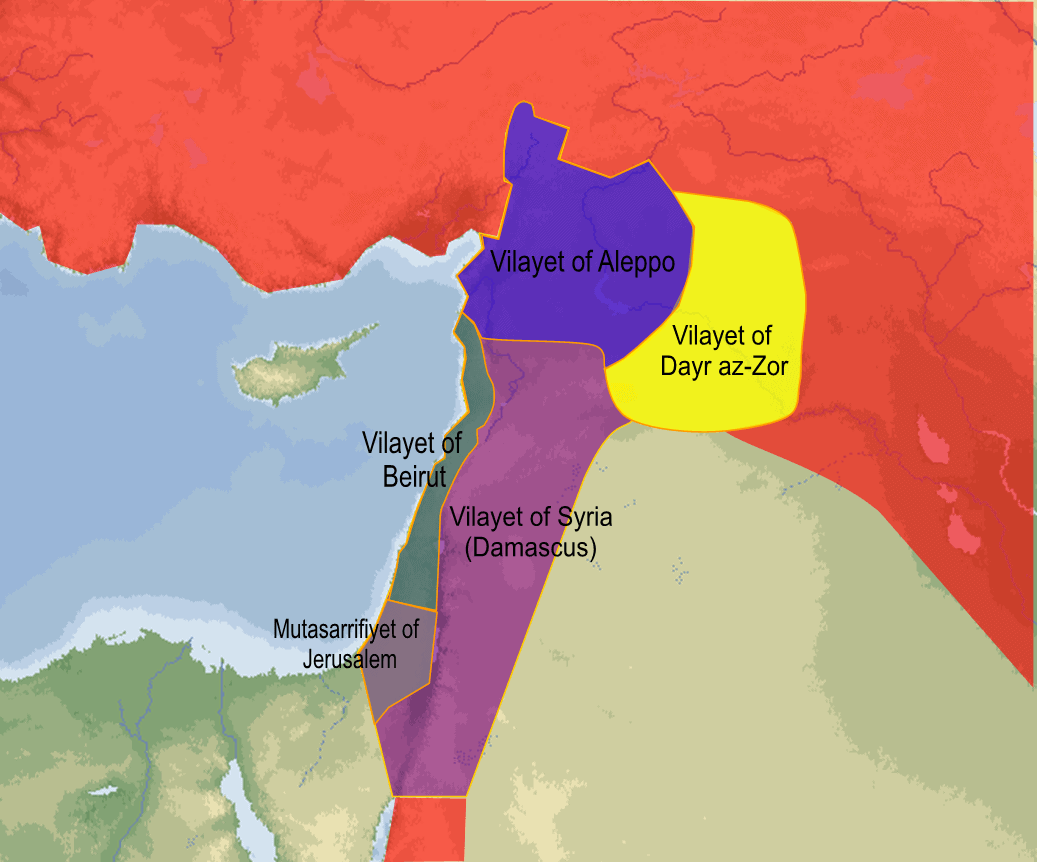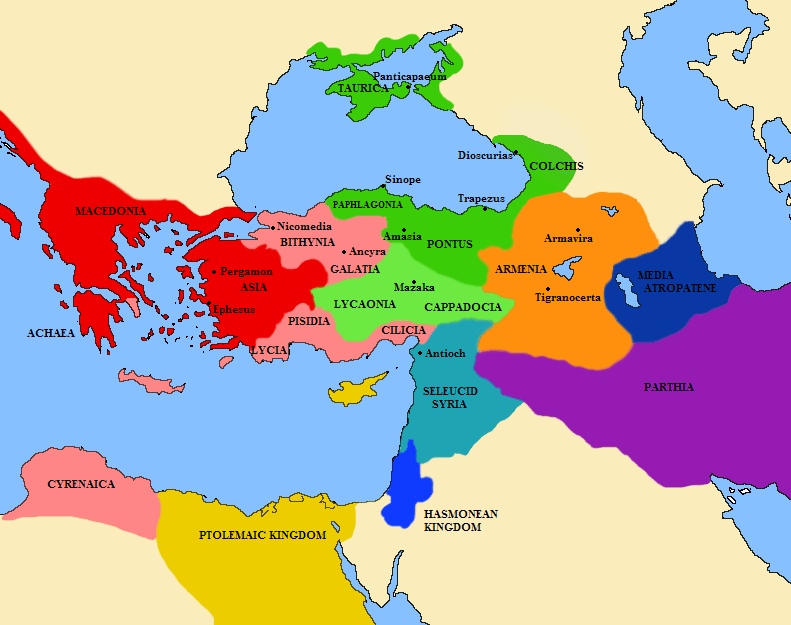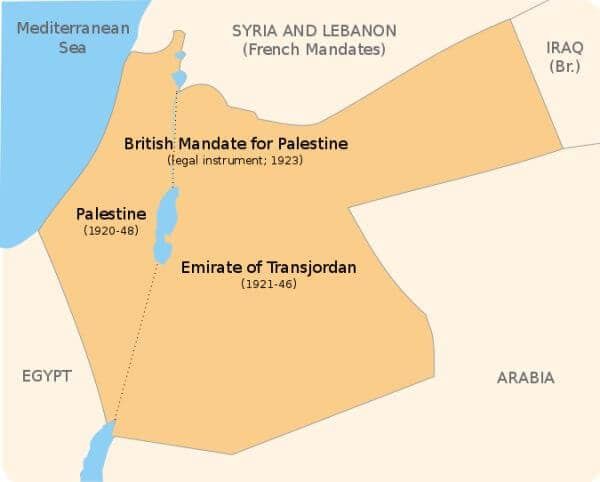The land between the Jordan River and the Mediterranean Sea has been inhabited for millennia, this much is indisputable. Jericho, Jerusalem, Jenin, and Jaffa are all some of the oldest cities in the world, having been continuously settled since before 2000 BCE.
However, just about everything else about this land is contentious, right down to the name. Palestinian historians such as Nur Masalha and key members of the Palestinian leadership as high as Mahmoud Abbas have claimed that the Palestinians are descendants of ancient peoples such as the Canaanites and Philistines, and that it is from this connection that the name “Palestine” is derived.
Bearing in mind that nationalism as we understand it is in and of itself a 19th-century phenomenon, it’s worth asking if the Palestinian claims are true.
Did the name Palestine come from the people, or did the people take their name from the place?
Join the fight for Israel’s fair coverage in the news
Origins of the Name “Palestine”

There are two primary sources for the region which is variously known today as Israel, Palestine, the Levant, and Canaan: archaeology and the Bible. While there are differences between the two, archaeologists and historians agree that the general narrative of the Bible is correct: Canaanites ruled the Levant before being pushed out by the ancient Hebrews, who then fought with the Philistines until invading empires conquered both tribes.
The name “Palestine” first appeared in Herodotus’ 5th century BCE histories to describe the coastal area of the Levant where the Philistines lived, before Romans applied it to the whole of the area following the suppression of the Bar Kochba Revolt of 132 CE. Thereafter, the word Palestine applied to the whole of the land, and subsequent rulers identified it as such.
Origins of the Palestinian People

It is important to remember that while the land was called Palestine by the year 134 CE, Islam would not arrive in the region for another 500 years.
In 634, the leaders of the first Muslim caliphate launched a series of invasions which resulted in the conquest of the previously Eastern Roman provinces of the Levant, including the area then known as Palestine. The conquest was followed by the mass conversion of the population to Islam and simultaneous migration of Arabic people from their native peninsula into their newly conquered territories, where they rapidly integrated into societies and mingled with the inhabitants, creating distinct genetic groupings closely matched with Arabic culture.
The Levant was ruled by a series of empires and caliphates following the Islamic conquest, first the Rashidun, Umayyad, Abbasid, and Fatimid Caliphates, then the Kingdom of Jerusalem (established by the Crusaders), which was succeeded by the Ayyubid and Mameluke Sultanates before finally being conquered by the Ottomans, who ruled the Levant from 1516 to 1917. Despite being a Turkish-dominated empire, the Ottomans were very successful in integrating the Arabs. Not until 1908 did Arabs begin to agitate for more rights and independence through political Arabism.
The Great Arab Revolt of 1916 backed by the British Empire ended Ottoman control over the area. The revolt was a product of Arab nationalism, the successor to political Arabism and the Arabic answer to Turkish nationalism.
However, not all Arabs were believers in the movement, and there was no widespread uprising across the Palestinian area. Despite this, following the end of World War I, the region of Palestine was included when the Arab Kingdom of Syria was declared, along with all of modern-day Syria, Lebanon, and parts of Jordan. Not until the kingdom fell apart in 1920 did any sort of specifically Palestinian national identity begin to emerge in response to Zionism and the rising levels of Jewish immigration into what was now the British Mandate for Palestine.
Origin of the Name “Judea”

The name Judea comes from the Kingdom of Judah, one of the successor states of the biblical united monarchy which ruled all of ancient Israel. Founded in 934 BCE, the kingdom ruled the lands from Jerusalem to Beersheba until its conquest in 586 BCE by the Neo-Babylonians.
Although the kingdom was destroyed, the name survived with the Jewish people, and when an independent kingdom once again reemerged in 140 BCE, the land was referred to as Judea. This name even survived the Roman conquest of the kingdom, and the Roman province which was created from much of the former kingdom bore the name Judea (Latinized as Iudaea).
The people of Judea, however, did not appreciate Roman rule, and the Jewish inhabitants revolted multiple times, necessitating the deployment of huge armies. After the third and final one of these (the previously mentioned Bar Kochba Revolt), the Romans changed the name of the province itself as part of their effort to suppress Jewish nationalism, and thereafter the name Palestine stuck.
Origin of the Name “Israel”
Israel is an even older name than Judea, found in the Bible (Genesis 32:28):
Then the man said, “Your name will no longer be Jacob, but Israel,[f] because you have struggled with God and with humans and have overcome.”
The name Israel was thereafter identified with the Tribes and Kingdom of Israel which Jacob’s descendants founded, and came to be synonymous with Judah, before eventually being replaced by it.
The first instance of widespread use of the name in the modern era was during the British Mandate: while the official name in English was the Mandate for Palestine, on official documents written in Hebrew the name would include the initials for Eretz Yisrael.

This, combined with the fact that the name Judah was associated with lands which mostly were not included under the partition plan of 1947, resulted in the name of the new Jewish state: Medinat Yisrael, the State of Israel.
Why Does This Matter?
In a different situation, this would merely be a debate over semantics: Levant, Canaan, Judea, Philistia, Palestine, Israel, they would all be different names for the same place.
Unfortunately, a key feature of Palestinian nationalism is the erasure of Jewish history, and so what the land is called does matter. The Palestinian Authority routinely denounces archeological finds in the city of Jerusalem as fake or illegitimate (see here, here, and here). It is common to hear claims that “Jesus was a Palestinian,” but this is misleading; Jesus was most likely born in Bethlehem, which today is within the borders of the West Bank, but he was Jewish and at his time of birth Bethlehem was part of the Herodian Tetrarchy, a Jewish client state of Rome. Furthermore, claiming that Jesus was a Palestinian (or Israeli, or Arab, or Middle Easterner, etc.) is inherently wrong because none of these terms existed at the time. Jesus would certainly not have identified himself as Palestinian, because that concept existed only as a place name, and not even one in widespread use.
Related reading: How Ancient Coins and Seals Prove the Jewish Connection to Jerusalem
To be sure, the conclusion to draw is not that Palestinian Arabs have no national history or heritage, because they most certainly do. However, the Palestinian narrative of descent from Canaan continuously through to today is disingenuous at best and outright false at worst, because it implies that the idea of Palestine as a nation has existed for just as long, and this is demonstrably false.
In summary, the name Palestine originally had nothing to do with the Palestinian people, but instead was associated with first the Philistines and then the area where they had lived, while the Palestinian people are a mix of indigenous and Arabic populations who assumed the label off of the example of the British Mandate.
In contrast, the Jewish people are historically connected to the names of Judea/Judah and Israel. While this by no means invalidates Palestinian claims to peoplehood, it is important to recognize what is truth and what is not.
Liked this article? Follow HonestReporting on Twitter, Facebook, Instagram and TikTok to see even more posts and videos debunking news bias and smears, as well as other content explaining what’s really going on in Israel and the region. Get updates direct to your phone. Join our WhatsApp and Telegram channels!
Maps of the ancient kingdoms, Ottoman province, Hasmonean dynasty and British Mandate Palestine all via Wikimedia Commons;

